The Blog
Recent Posts by American Empire Project Authors and other Influencers
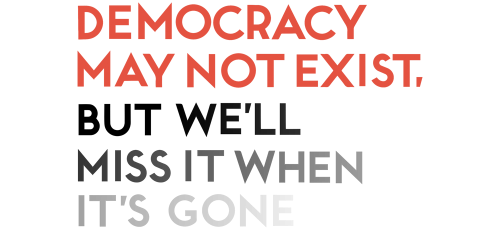
Astra Taylor
What is democracy? Since this deceptively simple question first came into my mind, I haven’t been able to shake it. We think we understand the word, but what are we really referring to when we talk about a system in which the people rule themselves?
The word democracy is all around us, invoked in almost every conceivable context: government, business, technology, education, and media. At the same time, its meaning, taken as self-evident, is rarely given much serious consideration. Though the headlines tell us democracy is in “crisis,” we don’t have a clear conception of what it is that is at risk. The significance of the democratic ideal, as well as its practical substance, is surprisingly elusive.
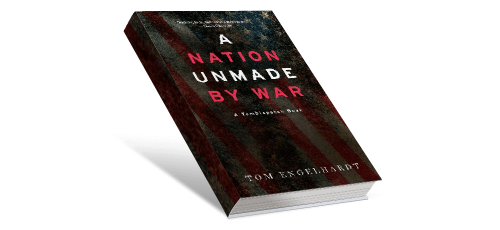
As the Flames Began to Rise, the Arsonists Appeared
Tom Engelhardt
As Notre Dame burned, as the flames leapt from its roof of ancient timbers, many of us watched in grim horror. Hour after hour, on screen after screen, channel after channel, you could see that 850-year-old cathedral, a visiting spot for 13 million people annually, being gutted, its roof timbers flaring into the evening sky, its steeple collapsing in a ball of fire. It was dramatic and deeply disturbing — and, of course, unwilling to be left out of any headline-making event, President Trump promptly tweeted his advice to the French authorities: “Perhaps flying water tankers could be used to put it out. Must act quickly!” No matter that water from such planes would probably have taken the cathedral’s towers down and endangered lives as well — “the equivalent,” according to a French fire chief, “of dropping three tons of concrete at 250 kilometers per hour [on] the ancient monument.” […]

American Conspiracy Theorists and Their Surprising Rise to Power
Anna Merlan
In January 2015, I spent the longest, queasiest week of my life on a cruise ship filled with conspiracy theorists. As our boat rattled toward Mexico and back, I heard about every wild plot, secret plan, and dark cover-up imaginable. It was mostly fascinating, occasionally exasperating, and the cause of a headache that took months to fade. To my pleasant surprise, given that I was a reporter traveling among a group of deeply suspicious people, I was accused only once of working for the CIA.
The unshakable certainty that many of the conspiracy theorists possessed sometimes made me want to tear my hair out, how tightly they clung to the strangest and most far-fetched ideas. I was pretty sure they had lost their hold on reality as a result of being permanently and immovably on the fringes of American life. I felt bad for them and, to be honest, a little superior.
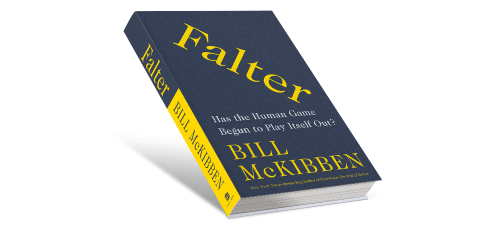
Has the Human Game Begun to Play Itself Out?
Bill McKibben
If you viewed Earth from far above (and for better or worse, this book will often take a high, wide perspective), roofs would probably be the first feature of human civilization you’d notice. A descending alien would see many shapes, often corresponding to the local weather: A-frames for shedding snow, for instance. There are gambrel roofs, mansards, hipped and gabled roofs. Pagodas and other Asian temples often sport conical tops; Russian churches come with onion domes; Western churches sit beneath spires.

How the U.S. Military Feeds at the Terror Trough
Tom Engelhardt
Here’s a statement it might be hard to disagree with: American war is off the charts. Still, I’d like to explain — but I’m nervous about doing so. I know perfectly well that the next word I plan to write will send most of you tumbling elsewhere in a universe in which “news” is the latest grotesque mass shooting; the craziest tweet from you-know-who; celebrities marching into court over college-admissions scandals; or even a boy, missing for years, who suddenly turns up only to morph into a 23-year-old impostor with a criminal record. How can America’s wars in distant lands compete with that? Which is why I just can’t bring myself to write the next word. So promise me that, after you read it, you’ll hang in there for just a minute and give me a chance to explain. Okay, here goes: Somalia. A country in the horn of Africa, […]
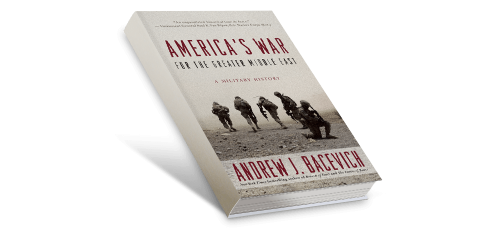
The Trump Era as an Occasion for Truth Telling
Andrew Bacevich
Irony, paradox, contradiction, consternation — these define the times in which we live. On the one hand, the 45th president of the United States is a shameless liar. On the other hand, his presidency offers an open invitation to Americans to confront myths about the way their country actually works. Donald Trump is a bullshit artist of the first order. Yet all art reflects the time in which it’s produced and Trump’s art is no exception. Within all the excrement lie nuggets of truth. Well before Trump rode the down escalator to the center of American politics, there were indicators aplenty that things had gone fundamentally awry. Yet only with the presidential election of 2016 did the chickens come home to roost. And with their arrival, it became apparent that more than a few propositions hitherto accepted as true are anything but. Let me offer seven illustrative examples of myths […]
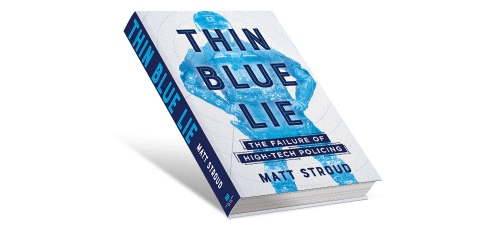
The Failure of High-Tech Policing
Matt Stroud
Everyone remembers Ferguson. The small municipality in Missouri, located ten miles northwest of St. Louis, with a mostly black population of about twenty-one thousand, was the setting of a shocking police killing in 2014 that captured the nation’s attention.1 The city’s population, however, also represented a much broader trend—the culmination of a cycle of white flight that had been playing out all over the country for decades. In the 1950s and ’60s, as blacks moved in massive numbers from the South to large northern cities like St. Louis, white families fled those cities for the suburbs. By the 1980s, some blacks had accumulated enough wealth to move to the suburbs, too, and when they did many whites fled again to exurban communities even farther out. This trend created intensely segregated and often impoverished suburbs2—which Ferguson perfectly exemplified: between 1980 and 2010, Ferguson’s white population decreased from 85 to 29 percent […]
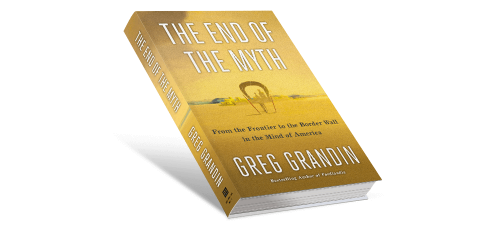
Bound at the Border, or How to Make Border Porn
Greg Grandin
On February 15th, Donald Trump declared a state of national emergency in order to fund his “great, great” border wall without having to go through Congress. There is, of course, no emergency, despite the rape fantasy that the president has regularly tried to pass off as public policy. In speech after speech, including his declaration of that emergency, he has told the same story: the United States needs a border wall to prevent sex traffickers from driving women into the country, bound with duct tape. “Women are tied up,” he typically says. “They’re bound. Duct tape put around their faces, around their mouths. In many cases they can’t even breathe.” It’s a scenario he’s only continued to elaborate over time. “They have tape over their mouths, electrical tape, usually blue tape, as they call it. It’s powerful stuff. Not good. And they have three, four, five of them in vans, […]

From the Frontier to the Border Wall in the Mind of America
Greg Grandin
Poetry was the language of the frontier, and the historian Frederick Jackson Turner was among its greatest laureates. “The United States lies like a huge page in the history of society,” he wrote in 1893. “Line by line as we read this continental page from West to East we find the record of social evolution.”1 Expansion across the continent, Turner said, made Europeans into something new, into a people both coarse and curious, self-disciplined and spontaneous, practical and inventive, filled with a “restless, nervous energy” and lifted by “that buoyancy and exuberance which comes with freedom.” Turner’s scholarly career spanned the late nineteenth and early twentieth centuries, during the height of Jim Crow and the consolidation of anti-miscegenation and nativist exclusion laws, with the KKK resurgent. Mexican workers were being lynched in Texas, and the U.S. military was engaged in deadly counterinsurgencies in the Caribbean and Pacific. But what became known as Turner’s Frontier Thesis—which argued that the expansion of settlement across a frontier of “free land” created a uniquely American form of political equality, a vibrant, forward-looking individualism—placed a wager on the future.

Or How to Solve the Border and China Problems in One Swell Foop
Tom Engelhardt
Call me crazy, if you want, but I think I see how to do it! We have two intractable issues, one intractable president, and an intractable world, but what if it weren’t so? What if those two intractable problems could be swept off the table by a single gesture from that same intractable man? As a start, consider the problem of President Trump’s embattled “great, great wall,” the one to be built across 1,000 (or is it 2,000?) miles of our southern border, the one that so obsesses him, filling every other hour of his tweet-storming day, the one that a recalcitrant Mexican government refused to pay for, that Congress wouldn’t pony up the money for, and that striking percentages of Americans don’t want to fund either. As for turning it into a national emergency, that’s only going to line the pockets of law firms, not build the “big, fat, […]
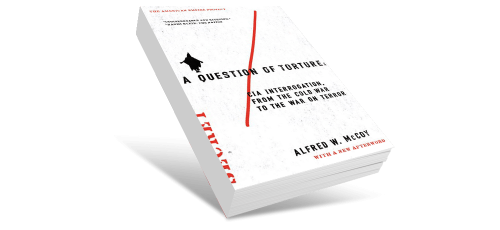
How Climate Change Could End Washington’s Global Dominion
Alfred McCoy
Once upon a time in America, we could all argue about whether or not U.S. global power was declining. Now, most observers have little doubt that the end is just a matter of timing and circumstance. Ten years ago, I predicted that, by 2025, it would be all over for American power, a then-controversial comment that’s commonplace today. Under President Donald Trump, the once “indispensable nation” that won World War II and built a new world order has become dispensable indeed. The decline and fall of American global power is, of course, nothing special in the great sweep of history. After all, in the 4,000 years since humanity’s first empire formed in the Fertile Crescent, at least 200 empires have risen, collided with other imperial powers, and in time collapsed. In the past century alone, two dozen modern imperial states have fallen and the world has managed just fine in […]
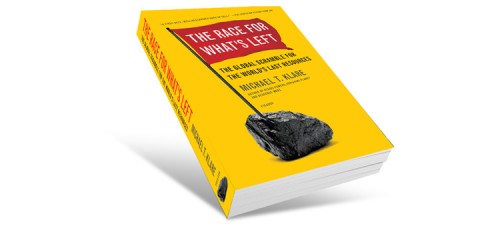
It’s Already Under Way
Michael Klare
In his highly acclaimed 2017 book, Destined for War, Harvard professor Graham Allison assessed the likelihood that the United States and China would one day find themselves at war. Comparing the U.S.-Chinese relationship to great-power rivalries all the way back to the Peloponnesian War of the fifth century BC, he concluded that the future risk of a conflagration was substantial. Like much current analysis of U.S.-Chinese relations, however, he missed a crucial point: for all intents and purposes, the United States and China are already at war with one another. Even if their present slow-burn conflict may not produce the immediate devastation of a conventional hot war, its long-term consequences could prove no less dire.
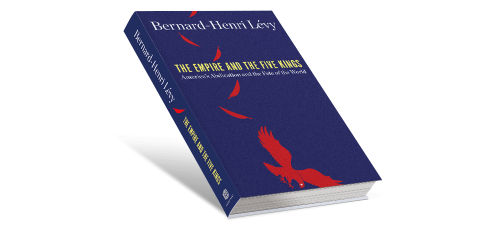
America's Abdication and the Fate of the World
Bernard-Henri Levy
What exactly happened in Kirkuk? Was it an isolated and temporary deviation? Can the blame be placed solely on an ignorant, inconsistent president? I have lived in the United States. I have traveled the country extensively. Thirteen years ago, retracing the footsteps of Alexis de Tocqueville, I wrote a book about it. At the time, the country induced in this friendly observer a sense of vertigo. With this background, I have a simpler explanation. Unfortunately, it is also more worrisome. The story begins a very long time ago. And upon hearing it, one will understand that the position of the world’s policeman, the protector of democratic values, or even the loyal ally of those I fault it for abandoning is not quite “natural” for the strange country that is America. I remember the pages that Hegel devoted to the newborn United States in his Lessons on the Philosophy of History. […]
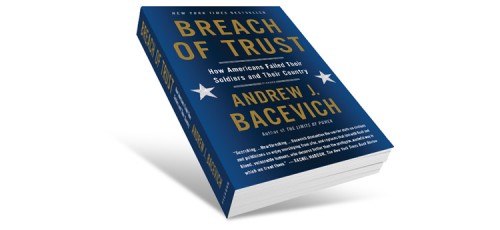
War in the Shadows (of You Know Who)
Andrew Bacevich
The news, however defined, always contains a fair amount of pap. Since Donald Trump’s ascent to the presidency, however, the trivia quotient in the average American’s daily newsfeed has grown like so many toadstools in a compost heap, overshadowing or crowding out matters of real substance. We’re living in TrumpWorld, folks. Never in the history of journalism have so many reporters, editors, and pundits expended so much energy fixating on one particular target, while other larger prey frolic unmolested within sight. As diversion or entertainment — or as a way to make a buck or win 15 seconds of fame — this development is not without value. Yet the overall impact on our democracy is problematic. It’s as if all the nation’s sportswriters obsessed 24/7 about beating New England Patriots coach Bill Belichick. In TrumpWorld, journalistic importance now correlates with relevance to the ongoing saga of Donald J. Trump. To […]

Afghanistan and the Implosion of America
Tom Engelhardt
As I approach 75, I’m having a commonplace experience for my age. I live with a brain that’s beginning to dump previously secure memories — names, the contents of books I read long ago (or all too recently), events, whatever. If you’re of a certain age yourself, you know the story.
Recently, however, I realized that this experience of loss, like so much else in our world, is more complex than I imagined. What I mean is that such loss also involves gain. It’s turned my mind to, and made me something of an instant expert on, one aspect of twenty-first-century America: the memory hole that’s swallowed up parts of our all-too-recent history. In fact, I’ve been wondering whether aging imperial powers, like old men and women, have a tendency to discard what once had been oh-so-familiar. There’s a difference, though, when it comes to the elites of the aging empire I live in at least. They don’t just dump things relatively randomly as I seem to be doing. Instead, they conveniently obliterate all memory of their country’s — that is, their own — follies and misdeeds.
